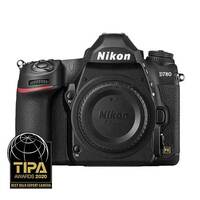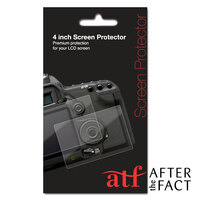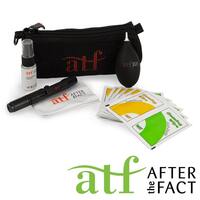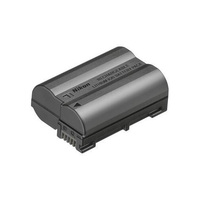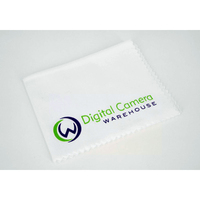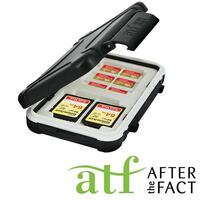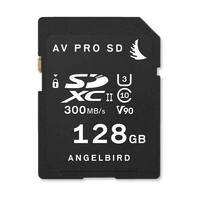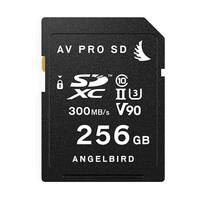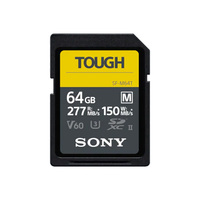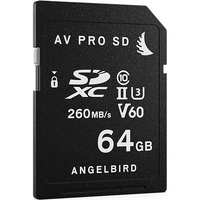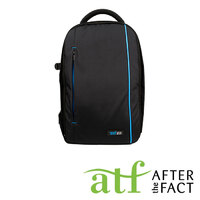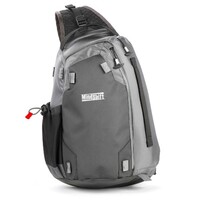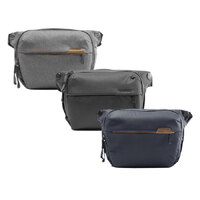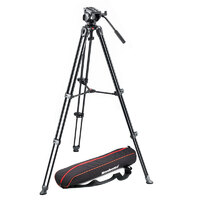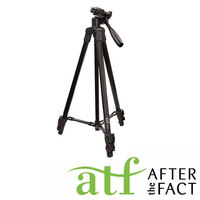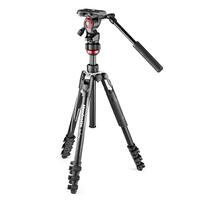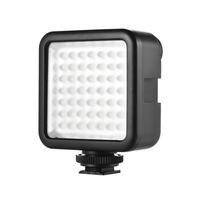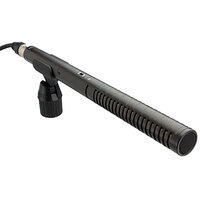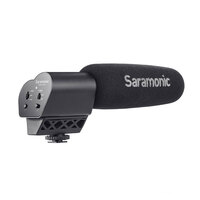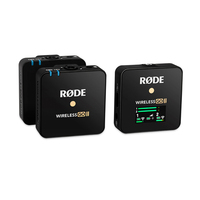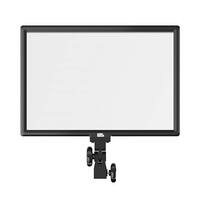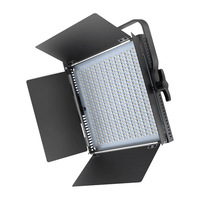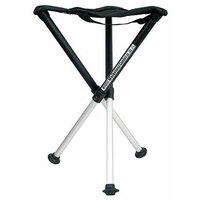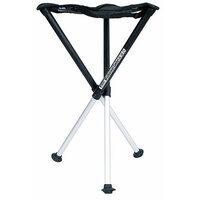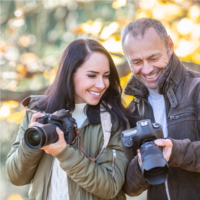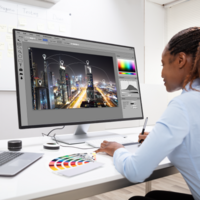Nikon D780 - Body Only
SKU code: 46065

Australian Owned, Online Since 2001

Local Contact Centre

Industry Experts, Knowledgeable Team

Australia Wide Delivery

From Beginner to Pro, Affordable Gear
Secure Payment Methods
Key Features:
- 24.5 Megapixel BSI Sensor
- Expeed 6 Image Processor
- Up to 12fps Continuous Burst Mode Shooting
- Optical 51-point AF System
- Live View 273-Point Hybrid AF System
- Face & Eye Tracking AF
- 4K30 & Full HD 120p Video Recording
- Wireless Snapbridge Connectivity
You May Also Like
The Essentials:
Bags, Cases & Straps:
Batteries & Chargers:
Lenses:
Tripods & Monopods:
Flashes & Lighting:
Cleaning & Maintenance:
Audio Equipment:
Studio Lighting:
Cables & Connectivity:
Other:
Z6 Technology comes to the Nikon F Mount
The Nikon D780 is the modern successor to one of Nikon's cult-status D750. The D780 is the first DSLR to incorporate a slew of mirrorless features inherited from its Z6 sibling while retaining the familiar ergonomics and the iconic Nikon F lens mount.
Hybrid DSLR & Mirrorless Technology
Touted as a true hybrid camera the D780 is the perfect choice for modern photographers and digital creatives. With the increased need for professionals and enthusiasts to shoot both photo and video, the camera blurs the lines between DSLR and mirrorless technologies to offer the best options from both worlds.
24.5 Megapixel BSI Sensor
At its heart is an updated Full Frame 24.5 Megapixel Backside illuminated sensor that delivers stunning detail and impressive low-noise results when shooting in difficult lighting situations.
Native ISO51200 Performance
Its ISO performance has been dramatically increased to take advantage of the sensors new capabilities. A new native limit of ISO51200, up from the previous ISO12800 in the D750 offers an incredible amount of creative versatility. An extended range of ISO50 to ISO204800 equips you with the confidence to nail the shot even in the darkest situations.
EXPEED 6 Image Processor
The latest generation EXPEED 6 image processor is combined with an uprated shutter mechanism to double the shutter speed of the previous generation from 1/4000s to 1/8000s. Long exposures have also been extended to 15 minutes for added convenience when shooting astro. Naturally, bulb mode is still available.
Up to 12fps Continuous Shooting
The continuous burst mode shooting is where we see the hybrid DSLR/Mirrorless design begin to bear fruit. With an improved 7fps with the mechanical shutter and a blistering 12fps maximum when using live view and the electronic shutter, you're equipped to capture even the most fleeting moments.
Hybrid Optical & Live View AF Performance
Focusing is fast and accurate thanks to inherited tech from its siblings. Focusing through the optical viewfinder is achieved via a 51-point AF system that's been inherited from the flagship D5. Live View focusing uses a 273 point on-chip phase-detect system which covers approximately 90% of the image sensor. Face and Eye Tracking AF can also be utilised in Live View shooting, making it perfect for nailing critical focus in portraits.
4K30 & FHD120 Video Recording
When pictures aren't enough to tell the story, the D780 offers 4K30 and Full HD 120fps recording. Video is recorded with the full width of the sensor and no pixel binning, ensuring the full potential of the 35mm sensor is utilised. Its 120fps frame rate at Full HD is great for slow motion and adds an additional element of creative potential.
4K Time-Lapse In-Camera
Time-Lapse shooting and 4K time-lapse movies are now also available in-camera. The built-in interval timer allows you to configure your duration and shot interval to output a 4K video file for instant sharing. The time-lapse mode can also be done post-shooting, allowing you to select a range of sequential image files to allow you to create the in-camera 4K video for any given period within your entire time-lapse duration.
2.3 Million-Dot Tilting Touchscreen
The rear of the D780 houses a 3.2-inch, 2.3million dot tilting touch screen. The large touch screen design makes it a breeze to navigate menus and playback, while the tilting design is well suited to shooting from ground-level for capturing unique perspectives.
Dual UHS-II SD Memory Slots
Dual UHS-II SD Card Slots add versatility and peace of mind for professional shooters. Reduce the need to swap out cards, save photos to one card and video to another, save RAW to one card and JPEGS to another or automatically save all content to both cards as a failsafe backup.
Wireless Snapbridge Connectivity
Suited to the modern content creator, the Nikon D780 also features Wireless Snapbridge connectivity making it handy for social sharing. Also ideal to take on your travels, it features in-camera battery charging, eliminating the need to carry bulky chargers and cables.
| Type | Single-lens reflex digital camera |
| Lens mount | Nikon F mount (with AF coupling and AF contacts) |
| Effective angle of view | Nikon FX format |
| Image sensor format | FX |
| Image sensor type | CMOS |
| Sensor size | 35.9 mm x 23.9 mm |
| Total pixels | 25.28 million |
| Dust-reduction system | Image sensor cleaning, Image Dust Off reference data (Capture NX-D software required) |
| Effective pixels | 24.5 million |
| Image size (pixels) | FX (36x24) image area: (L) 6048 x 4024 ( 24.3 million) (M) 4528 x 3016 ( 13.7 million) (S) 3024 x 2016 ( 6.1 million) DX (24x16) image area: (L) 3936 x 2624 ( 10.3 million) (M) 2944 x 1968 ( 5.8 million) (S) 1968 x 1312 ( 2.6 million) 1:1 (24x24) image area: (L) 4016 x 4016 ( 16.1 million) (M) 3008 x 3008 ( 9.0 million) (S) 2000 x 2000 ( 4.0 million) 16:9 (36x20) image area: (L) 6048 x 3400 ( 20.6 million) (M) 4528 x 2544 ( 11.5 million) (S) 3024 x 1696 ( 5.1 million) Photographs taken while filming movies at a frame size of 3840 x 2160: 3840 x 2160 Photographs taken while filming movies at other frame sizes: 1920 x 1080 |
| File format | NEF (RAW): 12 or 14 bit (lossless compressed or compressed) JPEG: JPEG-Baseline compliant with fine (approx. 1:4), normal (approx. 1:8), or basic (approx. 1:16) compression; size-priority and optimal-quality compression available NEF (RAW)+JPEG: Single photograph recorded in both NEF (RAW) and JPEG formats |
| Picture Control system | Auto, Standard, Neutral, Vivid, Monochrome, Portrait, Landscape, Flat Creative Picture Controls (Dream, Morning, Pop, Sunday, Somber, Dramatic, Silence, Bleached, Melancholic, Pure, Denim, Toy, Sepia, Blue, Red, Pink, Charcoal, Graphite, Binary, Carbon); selected Picture Control can be modified; storage for custom Picture Controls |
| Media | SD, SDHC (UHS-II compliant), SDXC (UHS-II compliant) |
| Card slot | 2 Secure Digital (SD) cards The card in Slot 2 can be used for overflow or backup storage or for separate storage of NEF (RAW) and JPEG images; pictures can be copied between cards. |
| File system | DCF 2.0 Exif 2.31 |
| Viewfinder | Eye-level pentaprism single-lens reflex viewfinder |
| Frame coverage | FX: Approx. 18% horizontal and 18% vertical DX: Approx. 97% horizontal and 97% vertical 1:1: Approx. 97% horizontal and 18% vertical 16:9: Approx. 18% horizontal and 97% vertical |
| Magnification | Approx. 0.7x (50 mm f/1.4 lens at infinity, -1.0 m(*1)) |
| Eyepoint | 21 mm (-1.0 m(*1); from centre surface of viewfinder eyepiece lens) |
| Diopter adjustment | -3 to +1 m(*1) |
| Focusing screen | Type B BriteView Clear Matte Mark VIII screen (with AF-area brackets; framing grid can be displayed) |
| Reflex mirror | Quick return |
| Depth-of-field preview | Yes Pressing Pv button stops lens aperture down to value selected by user (A and M modes) or by camera (P and S modes) |
| Lens aperture | Instant return, electronically controlled |
| Compatible lenses | Types G, E, and D (some restrictions apply to PC lenses) Other AF NIKKOR lenses (excluding IX NIKKOR lenses and lenses for the F3AF) AI-P NIKKOR lenses DX lenses (using [DX (24 × 16)] image area) Non-CPU AI lenses (modes A and M only) During viewfinder photography, the electronic rangefinder can be used with lenses that have a maximum aperture of f/5.6 or faster. With lenses that have a maximum aperture of f/8 or faster, the electronic rangefinder supports 11 focus points. |
| Type | Electronically-controlled vertical-travel focal-plane mechanical shutter; electronic front-curtain shutter; electronic shutter |
| Speed | 1/8000 to 30 s (choose from step sizes of 1/3 and 1/2 EV, extendable to 900 s in mode M); Bulb; Time; X200 |
| Flash sync speed | X=1/200 s; synchronizes with shutter at 1/200 s or slower Auto FP high-speed sync supported |
| Modes | S (single frame), CL (continuous low speed), CH (continuous high speed), Q (quiet shutter-release), QC (quiet continuous shutter-release), Self-timer, MUP (mirror up) |
| Approximate frame advance rate | Up to 7 fps CL: 1 to 6 fps (viewfinder photography); 1 to 3 fps (live view photography) CH: 7 fps; when shooting NEF/RAW pictures during silent photography, either 8 fps (bit depth 14 bits) or 12 fps (bit depth 12 bits) QC: 3 fps |
| Self-timer | 2 s, 5 s, 10 s, 20 s; 1 to 9 exposures at intervals of 0.5, 1, 2, or 3 s |
| Metering system | Viewfinder photography: TTL exposure metering using RGB sensor with approximately 180K (180,000) pixels Live view: TTL exposure metering performed by image sensor |
| Metering mode | Matrix: 3D colour matrix metering III (type G, E, and D lenses); colour matrix metering III (other CPU lenses); colour matrix metering available with non-CPU lenses if user provides lens data Centre-weighted: Weight of 75% given to 12 mm circle in centre of frame; diameter of circle can be changed to 8, 15, or 20 mm, or weighting can be based on average of entire frame (non-CPU and AF-S Fisheye NIKKOR 8–15mm f/3.5–4.5E ED lenses use 12-mm circle) Spot: Meters circle approximately 4 mm in diameter (about 1.5% of frame) centred on selected focus point (on centre focus point when non-CPU or AF-S Fisheye NIKKOR 8–15mm f/3.5–4.5E ED lens is used) Highlight-weighted: Available with type G, E, and D lenses |
| Range | Matrix and centre-weighted metering: -3 to +20 EV Spot metering: 2 to 20 EV Highlight-weighted metering: 0 to 20 EV * Figures are for ISO 18 and f/1.4 lens at 20 °C/68 °F |
| Exposure meter coupling | CPU, AI |
| Mode | Auto, P: programmed auto with flexible program, S: shutter-priority auto, A: aperture-priority auto, M: manual EFCT Special effects modes: night vision; super vivid; pop; photo illustration; toy camera effect; miniature effect; selective colour; silhouette; high key; low key U1 and U2: user settings |
| Exposure compensation | –5 to +5 EV; -3 to +3 EV when filming movies (choose from step sizes of 1/3 and 1/2 EV) available in P, S, A, M, and EFCT modes |
| Exposure lock | Luminosity locked at detected value |
| ISO sensitivity (Recommended Exposure Index) | ISO 18 to 51200 (choose from step sizes of 1/3 and 1/2 EV); can also be set to approx. 0.3, 0.5, 0.7, or 1 EV (ISO 50 equivalent) below ISO 18 or to approx. 0.3, 0.5, 0.7, 1, or 2 EV (ISO 204800 equivalent) above ISO 51200; auto ISO sensitivity control available |
| Active D-Lighting | Can be selected from Auto, Extra high, High, Normal, Low, or Off |
| Type | Viewfinder photography: TTL phase detection performed using Advanced Multi-CAM 4000 II autofocus sensor module with support for 51 focus points (including 15 cross-type sensors; f/8 supported by 11 sensors); autofocus fine-tuning supported Live view: Hybrid phase-detection/contrast-detect AF performed by image sensor; autofocus fine-tuning supported |
| Detection Range | Viewfinder photography: -3 to +19 EV Live view: -5 to +19 EV; -7 to +19 EV with low-light AF 1 Figures are for ISO 18 at 20 °C/68 °F. 2 Still photography using single-servo AF (AF-S) and apertures of f/1.4 at dark end of range and f/5.6 at bright end of range; ISO 18; 20 °C/68 °F |
| Lens servo | Single-servo AF (AF-S), Continuous-servo AF (AF-C), AF mode auto-switch (AF-A, still photography only), full-time AF (AF-F, movie recording only) ; predictive focus tracking activated automatically according to subject status Manual focus (M): Electronic rangefinder can be used |
| Focus points | Viewfinder photography: 51 points with [All points] selected for Custom Setting a6 [Focus points used], 11 points with [Every other point] selected Live view : 273 points with [All points] selected for Custom Setting a6 [Focus points used], 77 points with [Every other point] selected * Still photography, [FX (36×24)] image area, single-point AF |
| AF-area mode | Viewfinder photography: Single-point AF, 9-, 21-, or 51- point dynamic-area AF, 3D-tracking, group-area AF, auto-area AF Live view: Pinpoint AF (still photography only, single-servo AF/AF-S), single-point AF, dynamic-area AF (still photography only, continuous-servo AF/AF-C), wide-area AF (S), wide-area AF (L), auto-area AF |
| Focus lock | Focus can be locked by pressing shutter-release button halfway (single-servo AF/AF-S) or by pressing AE-L/AF-L button |
| Control | Viewfinder photography: TTL flash control performed by RGB sensor with approximately 180K (180,000) pixels Live view photography: TTL flash control performed by image sensor i-TTL balanced fill flash for digital SLR available with matrix, centreu-weighted, and highlight-weighted metering; standard i-TTL fill-flash for digital SLR available with spot metering |
| Mode | Front-curtain sync, red-eye reduction, slow sync, red-eye reduction with slow sync, rear-curtain sync, off |
| Flash compensation | –3 to +1 EV (choose from step sizes of 1/3 and 1/2 EV) available in P, S, A, and M modes |
| Flash-ready indicator | Lights when optional flash unit is fully charged; flashes after flash is fired at full output |
| Accessory shoe | ISO 518 hot-shoe with sync and data contacts and safety lock |
| Nikon Creative Lighting System (CLS) | i-TTL flash control, radio-controlled Advanced Wireless Lighting, optical Advanced Wireless Lighting, modelling illumination, FV lock, Colour Information Communication, auto FP high-speed sync, AF-assist for multi-area AF (viewfinder photography), unified flash control |
| Sync terminal | AS-15 sync terminal adapter (available separately) |
| White balance | Auto (3 types), natural light auto, direct sunlight, cloudy, shade, incandescent, fluorescent (7 types), flash, choose colour temperature (2500 K to 10,000 K), pre-set manual (up to 6 values can be stored, spot white balance measurement available during live view photography), all except choose colour temperature with fine-tuning |
| Bracketing types | Exposure and/or flash, white balance, and ADL |
| Modes | Photo live view, Movie live view |
| Metering system | TTL metering using camera image sensor |
| Metering mode | Matrix, centre-weighted, or highlight-weighted |
| Frame size (pixels) and frame rate | 3840 x 2160 (4K UHD); 30p (progressive), 25p, 24p 1920 x 1080; 120p, 18p, 60p, 50p, 30p, 25p, 24p 1920 x 1080 (slow-motion); 30p x4, 25p x4, 24p x5 * Actual frame rates for 120p, 18p, 60p, 50p, 30p, 25p, and 24p are 119.88, 18, 59.94, 50, 29.97, 25, and 23.976 fps respectively * Quality selection available at all sizes except 3840 x 2160, 1920 x 1080 120p/18p, and 1920 x 1080 slow-motion, when quality is fixed at high |
| File format | MOV, MP4 |
| Video compression | H.18/MPEG-4 Advanced Video Coding |
| Audio recording format | Linear PCM, AAC |
| Audio recording device | Built-in stereo or external microphone with attenuator option; sensitivity adjustable |
| ISO sensitivity (Recommended Exposure Index) | Manual selection (ISO 18 to 51200; choose from step sizes of 1/3 and 1/2 EV) with additional options available equivalent to approximately 0.3, 0.5, 0.7, 1, or 2 EV (ISO 204800 equivalent) above ISO 51200; auto ISO sensitivity control (ISO 18 to Hi 2) available with selectable upper limit |
| Active D-Lighting | Can be selected from Same as photo settings, Extra high, High, Normal, Low, or Off |
| Other options | Time-lapse movie recording, electronic vibration reduction, time codes, logarithmic (N-Log) and HDR (HLG) movie output |
| Monitor size | 8cm (3.2-in.) |
| Monitor resolution | Approx. 2359 k-dot (XGA) tilting TFT touch-sensitive LCD with 170° viewing angle, approximately 18% frame coverage, 11-level manual brightness adjustment, and colour balance control |
| Playback | Full-frame and thumbnail (4, 9, or 72 images or calendar) playback with playback zoom, playback zoom cropping, movie playback, photo and/or movie slide shows, histogram display, highlights, photo information, location data display, picture rating, auto image rotation, and index marking |
| USB connector | Type C connector (SuperSpeed USB); connection to built-in USB port is recommended |
| HDMI output connector | Type C HDMI connector |
| Audio input | Stereo mini-pin jack (3.5mm diameter; plug-in power supported) |
| Audio output | Stereo mini-pin jack (3.5mm diameter) |
| Accessory terminal | Built-in (can be used with accessories such as the MC-DC2 remote cord) |
| Wi-Fi for Africa, Asia (except China, Japan, Korea), Middle East, Oceania | IEEE 802.11b/g/n 2412 to 2118 MHz (channel 11) 2.4 GHz band: 2.9 dBm Open system, WPA2-PSK |
| Bluetooth | Bluetooth Specification Version 4.2 Bluetooth: 2402 to 2480 MHz Bluetooth Low Energy: 2402 to 2480 MHz Bluetooth: –2.6 dBm Bluetooth Low Energy: –4.1 dBm |
| Range (line of sight) | Approximately 10 m (32 ft) * Without interference. Range may vary with signal strength and presence or absence of obstacles. |
| Battery | One EN-EL15c rechargeable Li-ion battery |
| AC adapter | EH-5d/EH-5c/EH-5b AC adapter; requires EP-5B power connector (available separately) |
| Tripod socket | 1/4–in. (ISO 1222) |
| Dimensions (W x H x D) | Approx. 14.35 x 11.55 x 7.6 cm |
| Weight | Approx. 0.840Kg with battery and SD memory card but without body cap; approx. 0.755g (camera body only) |
| Operating environment | Temperature: 0°C to 40°C Humidity: 85% or less (no condensation) |
| Supplied accessories | BF-1B Body Cap, DK-31 Rubber Eyecup (comes attached to camera), EN-EL15b Rechargeable Li-ion Battery with Terminal Cover, MH-25a Battery Charger (comes with either an AC wall adapter or power cable of a type and shape that varies with the country or region of sale), DK-5 Eyepiece Cap, UC-E24 USB Cable, AN-DC21 Strap |
* Specifications subject to change by the manufacturer without notice
- Nikon D780 Camera Body
- Rechargeable Li-ion Battery with Terminal Cover (EN-EL15c)
- Battery Charger (MH-25a)
- Rubber Eyecup (comes attached to camera) (DK-31)
- Body Cap (BF-1B)
- Eyepiece Cap (DK-5)
- USB Cable (UC-E24)
- Neck Strap (AN-DC21)
Manufacturer Warranty

This product comes with a
24* month Australian warranty
from Nikon Australia
*Available with free registration at









